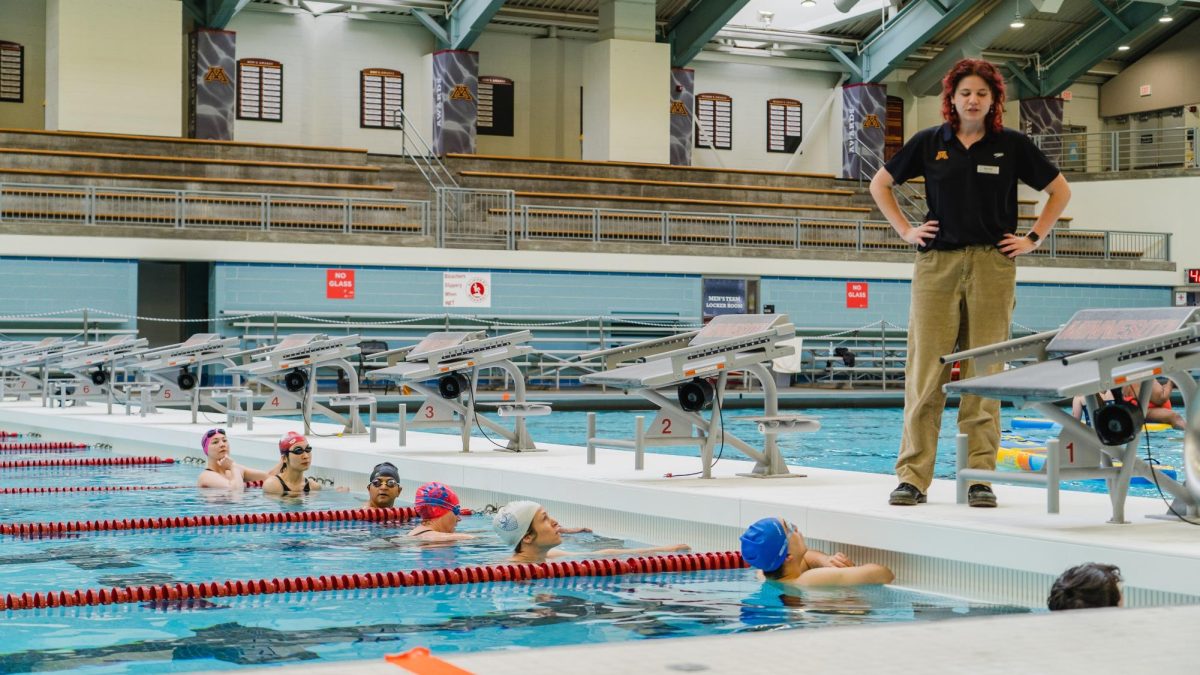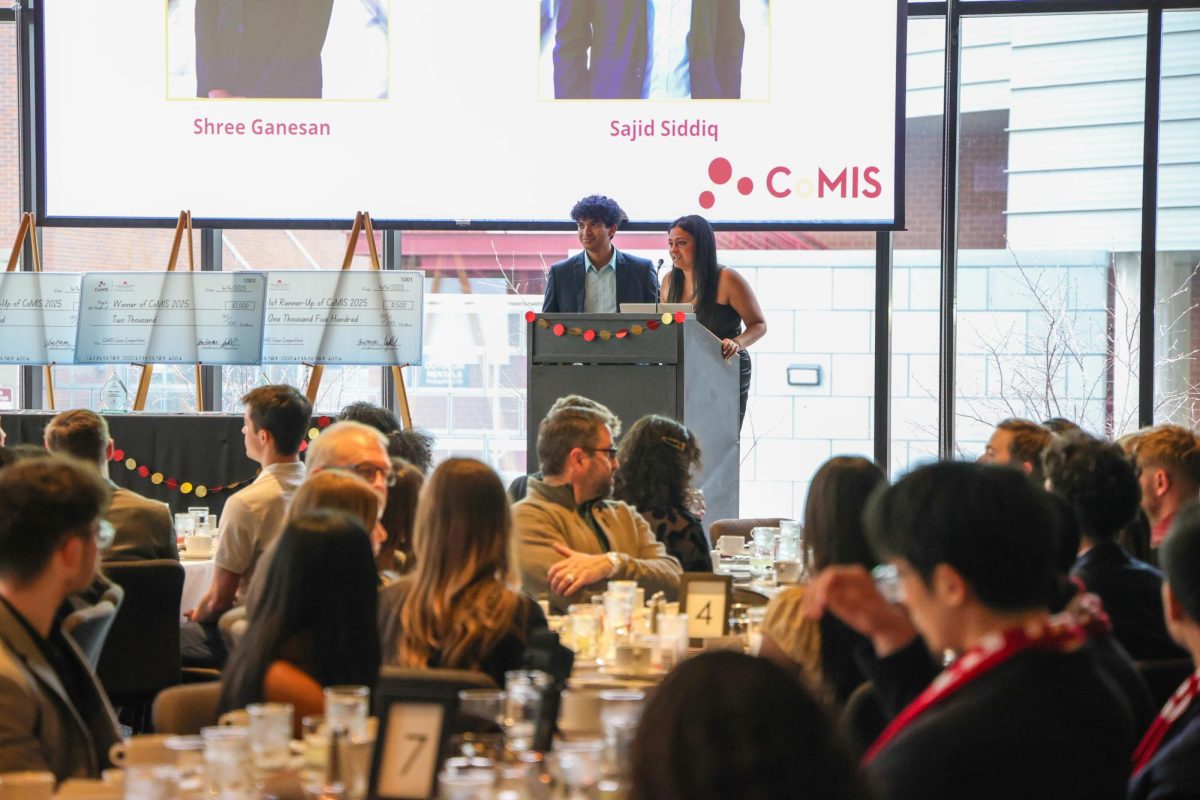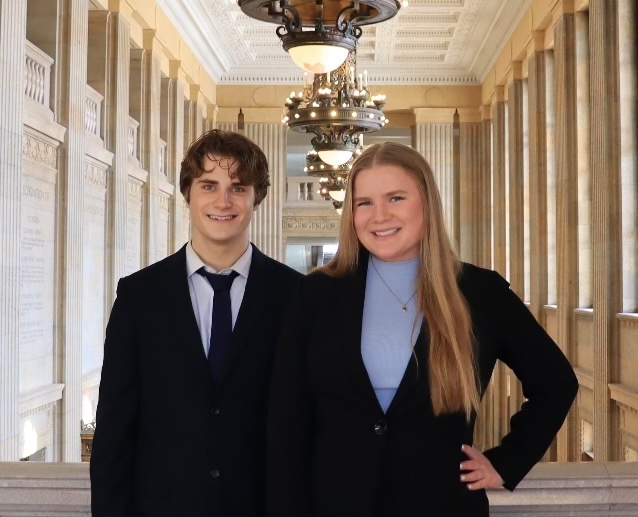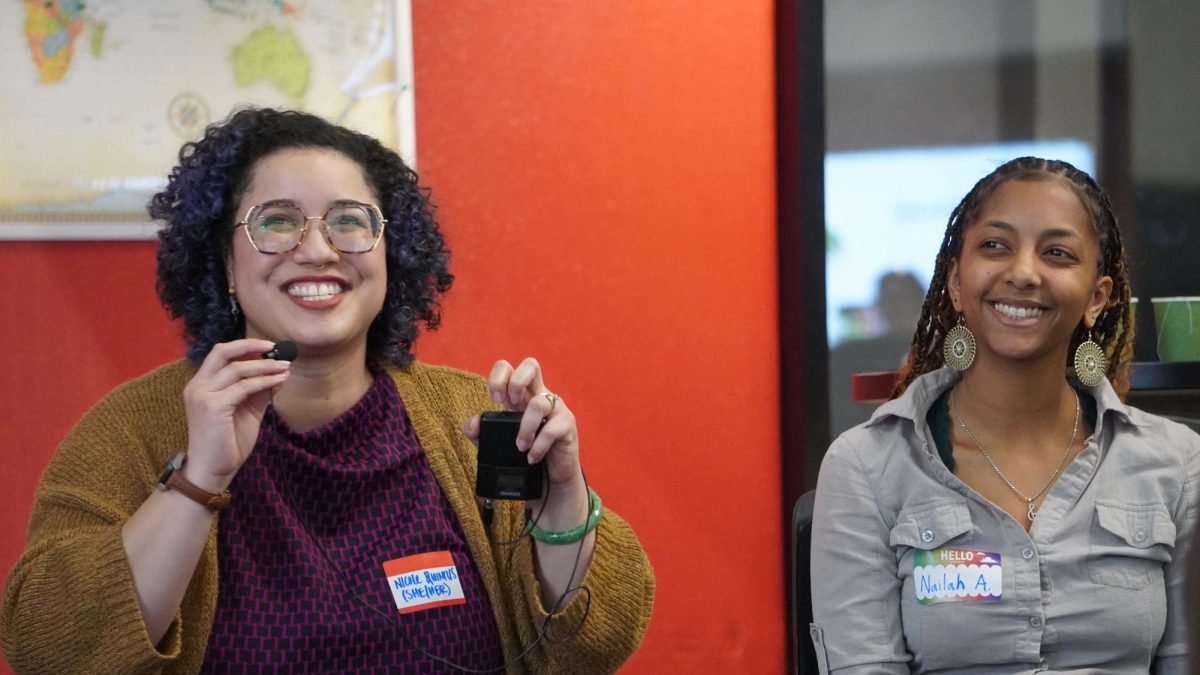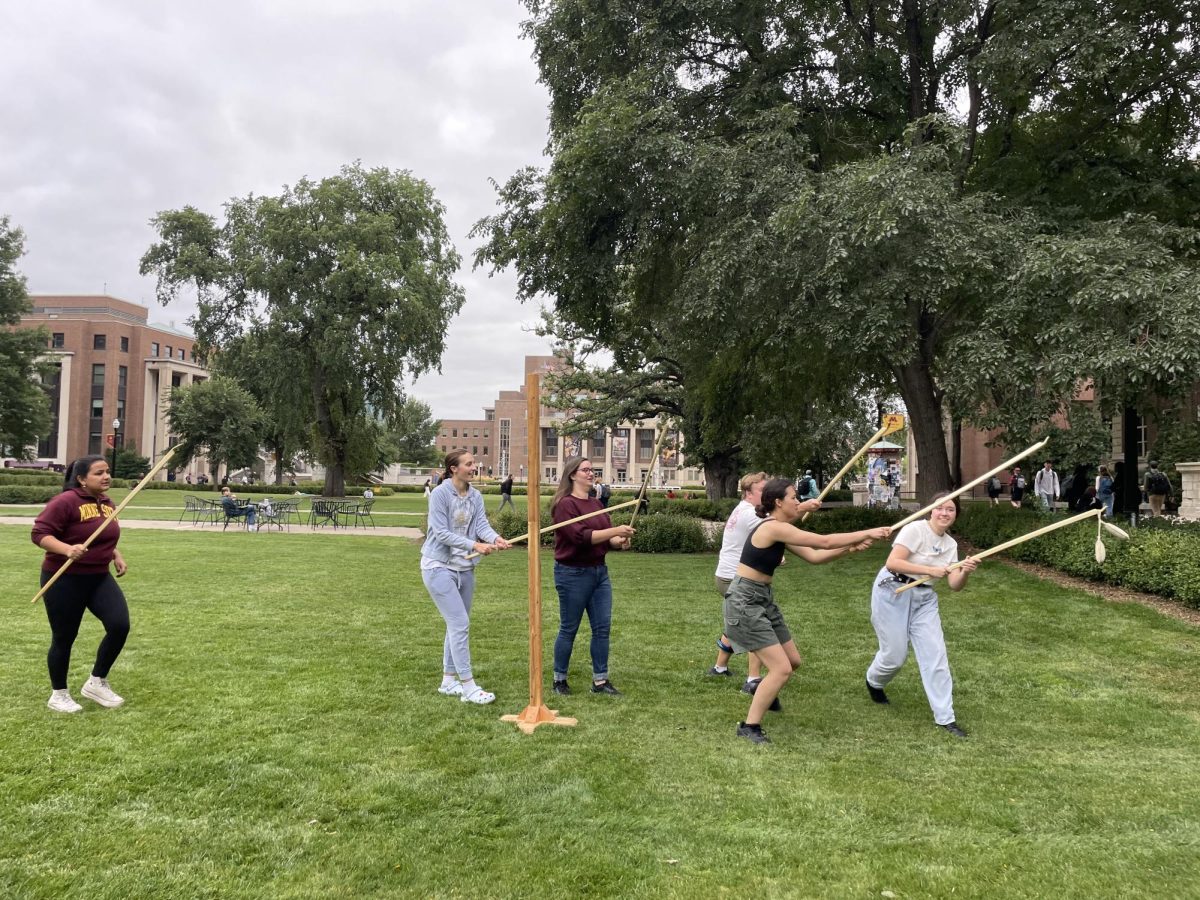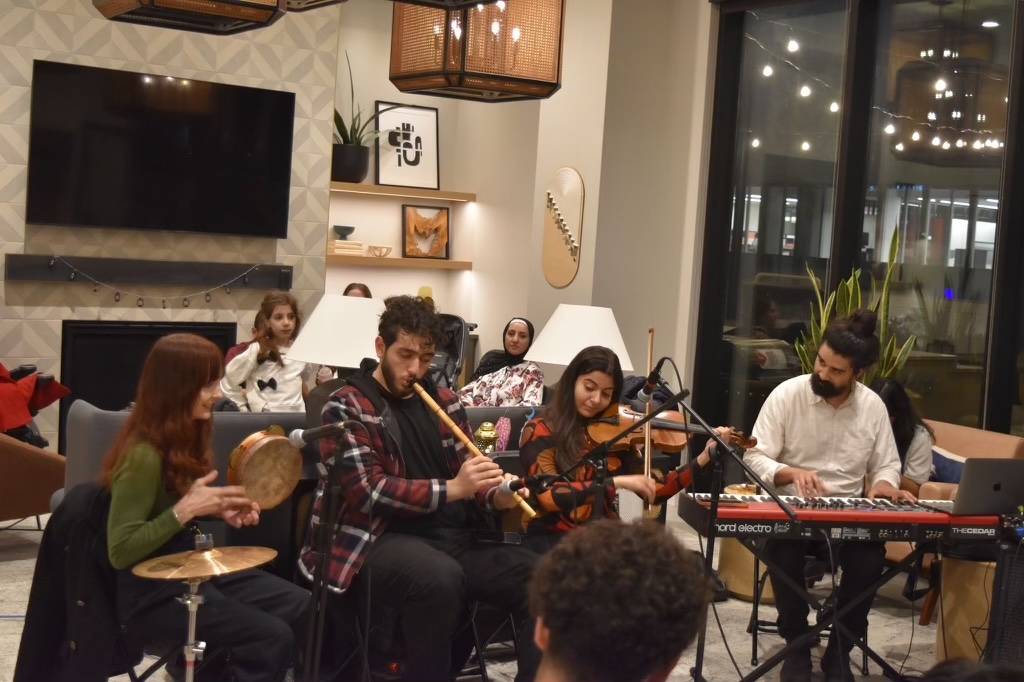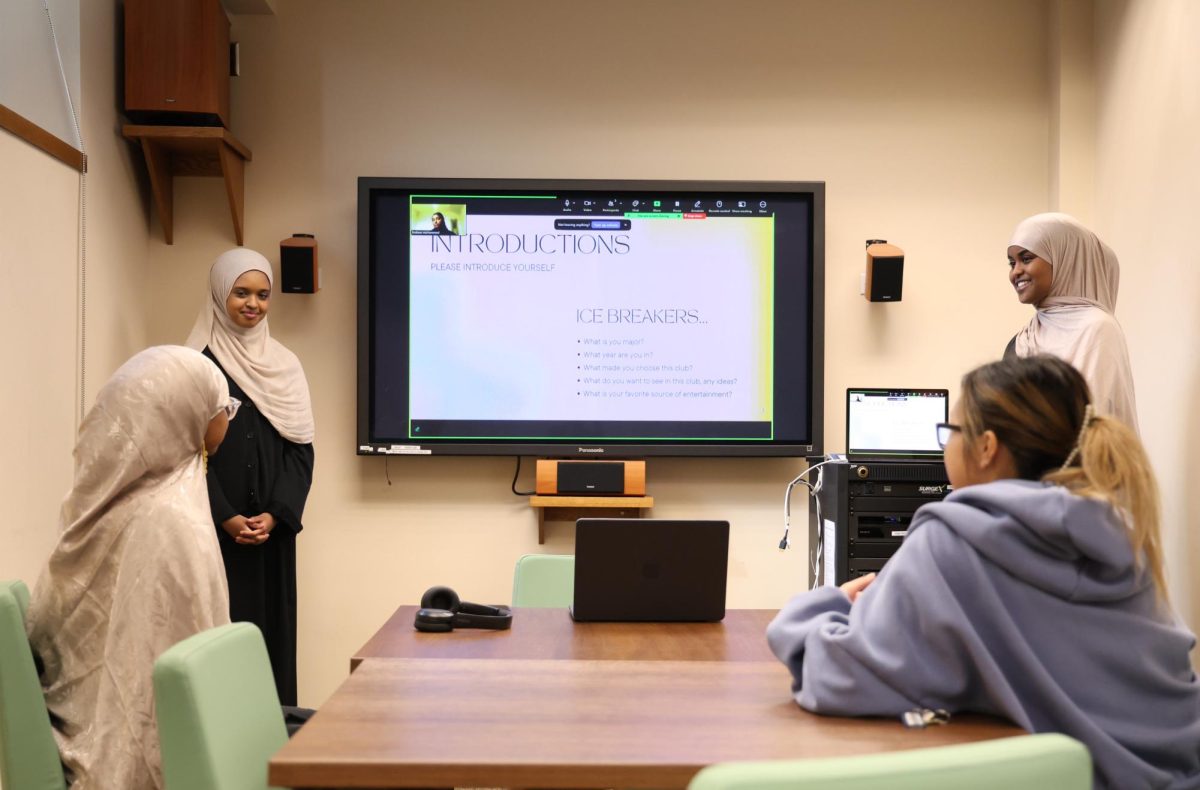Swim clinics at the University of Minnesota’s Recreation and Wellness Center provide individuals with a resource for improving their swimming skills.
The Gopher Swim School offers swimmers instruction opportunities several times a week throughout the academic year, teaching and providing feedback on technical skills that aim to improve confidence in the pool. Available to students, faculty and the public, Gopher Swim hosts adult swim and triathlon clinics, providing free gear for participant use when needed.
Adult clinics are 60 minutes long and run once a month. Triathlon clinics are offered as a three-week course with sessions between 60 to 75 minutes in length. Each week focuses on improving a different swimming technique.
Rachel Small, a student and advanced aquatics program assistant at the RecWell, said the swim clinics’ goal is to provide feedback and instruction outside of competition.
“Once you’re an adequate or decent swimmer, if you don’t want to practice three times a week or race twice a month, there’s sort of nowhere for you to go,” Small said. “We wanted to make a space for people to find swim instruction without having to dedicate their whole lives and all of their free time to swimming.”
Small said the clinic aims to accommodate a diverse range of participants and clinic participation varies.
“We have people who are trying to be pretty competitive in their triathlons and then people who have graduated swim lessons and still want to get coaching once a week so that they can swim on their own and feel confident,” Small said.
Small said the clinic’s typical demographic ranges from undergraduates and graduate students to retirees. Although clinics are fairly small, she said it is intentional to ensure every participant can receive specialized feedback from the coaching staff.
Three other coaches assist with running the clinics, with participants working with one or two instructors, Small said. Each coach is trained to teach the same set of clinics and collaborate frequently to best support their swimmers.
“Everyone gets on the same page at the start of the semester, anyone who has any feedback about the programming puts it out there, then we’ll adjust it if we see fit,” Small said
While the triathlon clinics follow a set routine, Small said with each week building on specific positioning, recovery and breathing techniques, coaches make time to work individually with participants on specific skills they are looking to improve.
Small was hired by Gopher Swim to help coach the clinics in 2023 and helped develop the triathlon and adult swim clinics into individual comprehensive teaching programs. The clinics started in 2022, with the triathlon clinic functioning as a flexible time for swimmers to meet with coaches and work on drills based on their needs.
Bethany Hirschi, an aquatics program coordinator at the RecWell, said the idea for the triathlon clinics was raised by Linda McKee, the associate department director and director of aquatics, who participated in triathlons.
“She was like, ‘Hey, there’s this huge group of people that do triathlons, but no space and no resources out there to get the specific training for just swimming for triathlons,’” Hirschi said. “Thanks to Rachel, she created this incredible idea to make it a set program.”
Cost and registration for the clinics vary depending on the clinic type and attendance. Each adult swim clinic costs $30 to register, whereas participants can attend the triathlon clinics individually for $40 or purchase a clinic package for all three clinics for $100.
Free clinics are offered at the start and end of each semester and all four coaches assist with these clinics to help with high turnout, Small said.
Hirschi said the program fees help support the programs and ultimately aid in program development.
Gopher Swim will host a Water Safety Festival on April 27, which includes free programming for interested swimmers.
Taylor Hamilton, a third-year student and advanced aquatics coach, said she enjoys instructing the clinics because it is an opportunity to teach new skills to adult swimmers.
“I like seeing when they do something that we’re teaching, and they’re like, ‘Wow, that really makes my stroke feel more complete and feel better for me,’” Hamilton said. “We are pretty receptive to all levels of swimmers, and we just want everyone to succeed and do their best.”
Olivia Hutzler, a second-year student and advanced aquatics coach, said that as a tight-knit coaching group, she finds instructing the clinics rewarding and fun.
“We want what’s best for everyone in advanced aquatics,” Hutzler said. “The adults are receptive and understanding, and they’re like, ‘Oh, so I am doing this wrong. How can I fix that?’ They want to learn and I really like that.”


